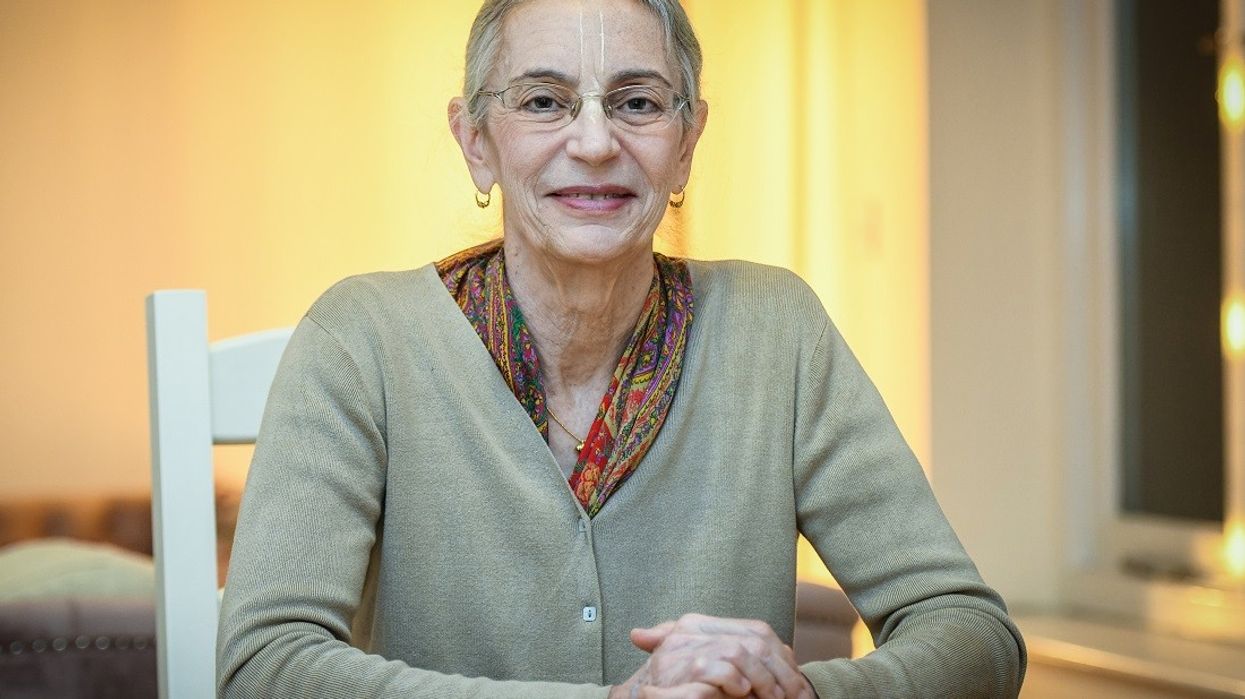SOMETIMES I become struck with wonder at some of the statements in the writings of His Divine Grace AC Bhaktivedanta Swami Prabhupada. One such statement is: “Truthfulness is the basic principle for all religions.” (Srimad Bhagavatam 1.17.41 purport)
Srila Prabhupada, the founder and teacher of the International Society for Krishna Consciousness (ISKCON), explains that because the ultimate goal of all religions is to please god, and the central point in pleasing god is truthfulness, therefore truthfulness the basic principle of all religions. God, it seems, does not look kindly upon hypocrites.
Truthfulness has far more importance than I ever envisioned, which makes me want to understand it more thoroughly.
The word ‘truth’ comes from the Old English treowth, meaning fidelity, or being faithful to what is true. And interestingly, the word ‘true’ is linked to Sanskrit daruna hard, and daru wood. (In Old English, the word ‘tree’ was ‘treow’, which not only meant tree but also ‘trust’ or ‘promise’. This shared linguistic root is why the words ‘tree’ and ‘true’ are so similar, and can explain the common association of trees with concepts such as reliability and steadfastness.)
Hearing about truthfulness, inevitably our minds summon prominent politicians and businessmen in various countries who’ve been accused or convicted of a myriad of enormously dishonest dealings. Humans have a strong propensity to cheat, and when we’re exposed to tempting circumstances, that tendency readily emerges. Sadhus, however, are supposed to conquer this unfortunate cheating propensity. A true sadhu seeks truth, discerns truth from falsity, accepts truth and follows its path without duplicity.
Sadhus have this strength of character (like the tree mentioned above – reliable and steadfast) because they are in sattva-guna, the mode of goodness, which is characterised by mind and sense control as well as the peacefulness such control evokes. Sadly, in our times we have even seen religious leaders who claim to be self-controlled succumb to the forces of lust and greed, which can easily make the rest of us disappointed and cynical.
The glorious Srimad Bhagavatam, the ripened fruit of all Vedic literature, has a recommendation for those of us who are dismayed by the untruthful, and that is for each of us to decide to become truthful. We can do that through the Bhagavatam itself: “That literature which is full of descriptions of the transcendental glories of the name, fame, forms, pastimes, etc., of the unlimited supreme lord is full of transcendental words directed toward bringing about a revolution in the impious lives of this world’s misdirected civilisation. Such transcendental literatures, even though imperfectly composed, are heard, sung and accepted by purified men who are thoroughly honest.” (SB 1.5.11)
Srila Prabhupada comments, “By broadcasting the holy name and fame of the supreme lord, the polluted atmosphere of the world will change, and as a result of propagating transcendental literature like Srimad Bhagavatam, people will become sane in their transactions… transcendental literature like Srimad Bhagavatam will not only diminish the activities of the corrupt mind of the people in general, but also it will supply food for their hankering after reading some interesting literature.”
The unique feature of Srimad Bhagavatam, which was compiled by the great sage Vyasadeva in his maturity, is that it completely rejects all religious activities that are materially motivated. Instead, it promotes the highest truth, which is reality distinguished from illusion. Such truth offers us protection from worldly miseries – and it offers infinitely more. When we attentively and submissively hear its message, the beautiful Bhagavatam offers us god realisation. The supreme lord himself, Sri Krishna, becomes established within the heart of the sincere hearer of Srimad Bhagavatam.
Those fortunate persons who seek genuine truthfulness in the verses and purports of the Srimad Bhagavatam, churning its contents with other such seekers, aren’t allured by the distractions this world offers.
Serious students seeking the absolute truth are always overwhelmed with the work of researching that truth. In every sphere of our lives, therefore, our ultimate goal can be to seek the absolute truth, Sri Krishna. That sort of engagement will make us happy because we’ll be less and less engaged in varieties of sense gratification.
In other words, the way we can become truthful – and happy as well – is by sincerely cultivating our inner life, the life of spirit. Sri Krishna himself recommends this process, “One whose happiness is within, who is active and rejoices within, and whose aim is inward is actually the perfect mystic. He is liberated in the absolute truth, and ultimately he attains the absolute truth.” (Gita 5.24) If we can begin to relish happiness within ourselves, we will relinquish superficial material happiness and all the devious, untruthful ways we may try to attain it.
Then we will be firmly situated in truthfulness, the basic principle for all religions.




